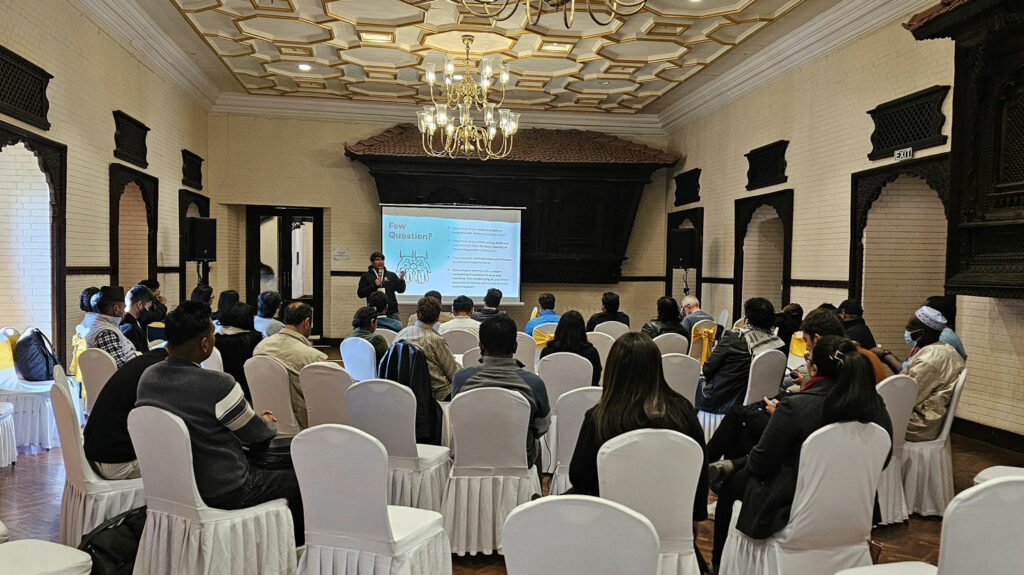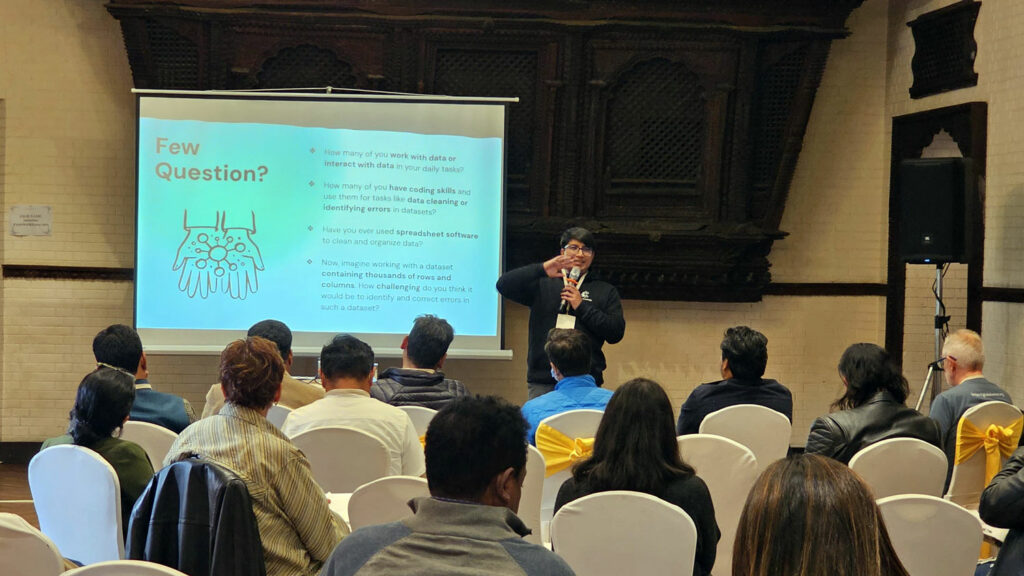How often do you interact with data in your daily tasks? For many of us, working with data has become a regular part of our professional and personal lives. But, do you have the coding skills needed to clean and prepare data for deeper analysis?
When asked these questions during our session at the Global Voices Summit 2024 – a global gathering of digital media, knowledge, and activism leaders – the responses were revealing. While half the participants acknowledged working with data daily, only a small fraction raised their hands when asked about coding skills. This reflects a widespread reality: Many people work with data, but few have the tools or expertise to handle it efficiently.



Recognising these challenges, we introduced the Open Data Editor (ODE) during the Summit’s demo session. Designed as a practical tool for non-technical users, ODE is a desktop application that simplifies error detection, editing, and publishing for tabular data. In this demo session, we explored best practices for working with data and demonstrated how ODE can help users identify and correct common dataset errors, making collaboration and sharing easier. Whether you’re a journalist, public official, or researcher, ODE enables you to produce high-quality, reusable datasets without the need for coding expertise.
Because non-technical users often encounter significant difficulties when handling large datasets:
- Assessing Data Quality: Spotting errors in files with thousands of rows and columns can be time-consuming and overwhelming.
- Error Identification: Spreadsheet tools like Excel and Google Sheets require repetitive actions, manual processes, and formulas, which are prone to mistakes.
Open Data Editor and Why It Matters?
The ODE, powered by the Frictionless toolkit, addresses common challenges in data handling with a suite of powerful features. For instance, ODE’s simplified error detection automatically identifies issues such as missing headers, duplicate columns, and incorrect data types, ensuring that errors are promptly flagged. Its visual editing tools further enhance usability, allowing users to explore highlighted errors and correct them directly within the application, making the process both intuitive and efficient. Additionally, ODE excels in metadata management, enabling users to edit and maintain structured metadata, ensuring datasets remain clean and well-documented for future use.
ODE empowers individuals and organisations to unlock the full potential of their data. By simplifying complex workflows, it allows users to streamline data handling, enabling them to focus on deriving meaningful insights rather than being hindered by technical challenges. Moreover, ODE significantly enhances collaboration by facilitating the creation of clean, shareable datasets. This ensures teams can work together more effectively, aligning efforts and maintaining consistency. Its robust error detection and correction capabilities also increase accuracy, reduce mistakes, and improve the reliability of data-driven decisions.
In essence, the Open Data Editor enables users to work smarter, not harder, revolutionising how they manage and leverage their data.
Feedback from the Summit
Participants shared insightful feedback at the Global Voices Summit 2024 to further enhance ODE. One key suggestion was to introduce a more robust error-reporting mechanism, allowing users to flag and document errors more effectively. This improvement would enhance transparency and significantly improve the user experience. Additionally, participants emphasised the integration of AI capabilities as a transformative feature, given the growing reliance on AI. Such capabilities could enable smarter recommendations for error correction and further streamline workflows.
Another area of interest was the availability of a web-based version of ODE. A cloud-based solution would provide greater accessibility and ease of use across devices. For instance, some participants highlighted that their organisations do not permit the installation of new applications on company computers and devices, making a web-based option essential.
Lastly, participants stressed the need for a simpler pitch to communicate ODE’s value more clearly and effectively. A concise and compelling message would help ensure that its benefits resonate with a broader audience. These suggestions underscore the ongoing commitment to making ODE an even more powerful, accessible, and user-friendly tool for data practitioners.
Looking to make data management easier and more accessible? The Open Data Editor is here to help. Download the latest version today and experience its transformative features firsthand!








